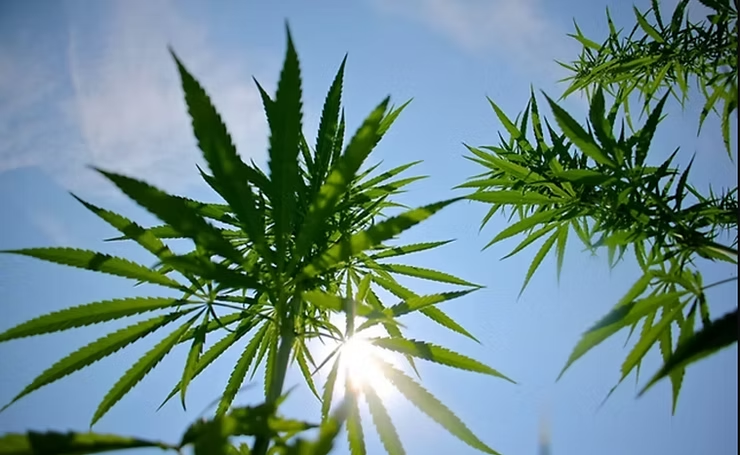The greatest threat to our planet is the belief that someone else will save it.”
—Robert Swan
One of my earliest encounters with the Nature was when I visited I G Park in my hometown with my parents and sister.
It was a beautiful park dotted with a lot of trees, plants and bushes. There was a lake with sparkling water too inside the park. As we walked through the park, we could see abundant life all around – birds, animals, children, families walking,
chattering laughing and talking. As we circled the park, we came across a fallen tree with decaying trunk.
I and my sister peered closely at the tree, and I realized that the decomposing trunk and rotting leaves were full of life themselves. Millions of microorganisms were at work in the tree trunk. On one hand the tree was supposed to be dead, on the other hand it was infused with life. This was Nature and life manifesting itself. An interplay of life and death.
The experience of this walk, combined with the wisdom of Indian philosophy that I had a chance to read in my later years, had a big impact on me.
Right now we are at an age where it is important to understand the place and role of man with respect to the interrelatedness of ecological cosmology.
Indian tradition views humans as fundamentally inseparable from nature. Nature is termed prakriti. What we see all around us – climate, terrain, vegetation, soil, water, lower life forms, animals, and humans is manifested prakriti. Then there is primordial prakriti from which prakriti arises. Intelligence, mind, ego are also elements of prakriti.
Even though nature or prakriti surrounds us and is the core of our economy, culture and life, human activities are such that they have drastically altered these vital systems, and that damage has accelerated over time.
The consequences of ecosystem destruction are far-reaching and dire, and threaten to destabilize the natural environmental processes that we rely on to live. A United Nations report found that three-quarters of land-based environments, and two-thirds of marine-based environments, have been detrimentally altered by human activities.
Many common human activities damage, alter or destroy the Earth’s ecosystems. Agricultural expansion, extraction of natural resources and urbanization are the sort of large-scale initiatives that contribute to ecosystemic destruction, while individual actions like overhunting and the introduction of invasive species can also contribute to an ecosystem’s decline.
These activities, to varying degrees, pollute the air and water, degrade and erode the soil, and cause the death of animals and plants. They also disrupt the natural environmental processes that allow ecosystems to exist, such as the hydrologic cycle.
As a result, these ecosystems are degraded and, in some cases, destroyed entirely. So much so that The Supreme Court on December 18, 2024 directed the state of Rajasthan as well as the Government of India to protect their sacred groves, in what is being seen as a landmark ruling on the country’s ecological wealth and heritage.
“The court deems it necessary to propose certain suggestions to promote the sustainable conservation of sacred groves and empower the communities associated with their protection,”, the three judge bench pronounced.
The Court’s ruling is important but what is even more important is to have a change in our behavior to protect our ecology. The change will happen only when the insatiable human consumption reduces. To bring about this behavioral shift it is important to live consciously. Conscious living is being conscious of the thoughts that arise in our mind because of which our behavior gets influenced, as a result of which we take certain action. Sometimes the action taken causes damage to the nature around us.
When we are conscious of our thoughts in our head, we can see and respond to what is here and now. From this calm and centered place, we can make the best decisions for our Environment and the world. There is no reactive “quick fix” to the problem of climate change. We need conscious responses that include many perspectives and consider long-term consequences and impact.
Conscious thinking will lead to mindful consumption of food, commodity and other materialistic things. One of the best ways to alleviate the stress on our environment is to consume less meat and eat more plant-based foods, which results in reduction in green house emissions.
We should also buy things mindfully. Virtually every product has a carbon price tag, whether it’s a new ‘energy efficient’ flat screen TV or a thick juicy burger. As people, concerned about the environment, it isn’t about what we’re buying, it’s about what we’re not buying. Our deep attachment to consuming for pleasure, for comfort, for boredom will lead to destruction of the environment. So, stop right now and practice seeing the abundance in your life.
Take a moment to feel deeply that in this moment, “you are enough and you have enough’.
At workplace, employees should commute less to work by working from home a few days a week. This reduces the carbon emissions from the vehicles. If going to office is a must, then try carpooling. Carpooling creates more community among employees and lowers carbon.
Avoid processed food and packages as they are generally not healthy for the environment.
Use biodegradable products for home. These are products made of non-synthetic ingredients that are biodegradable to limit the impact of this waste. Biodegradable products dissolve due to contact with bacteria and fungi. This means that if they come into contact with nature, they won’t cause any environmental harm, as they disappear through natural processes.
These are few ways to conserve our environment. There are many more.
The ethics of “sustainable development,” to which almost everyone subscribes today, requires this generation to use the world’s environmental resources in ways that do not jeopardize the ability of future generations to meet their own needs. To be successful, this principle requires another dimension—reverence and eco spirituality.
Development should preserve, not destroy, those assets of the natural and spiritual power of our own cultural heritage, which future generations would also wish to enjoy and cherish. The spirit of sustainability can be thought of as the ethic to behave in ways that help others. In addition, to realize the deeper nature of things—the cosmic integrity that is ultimately the sanctity of life.


